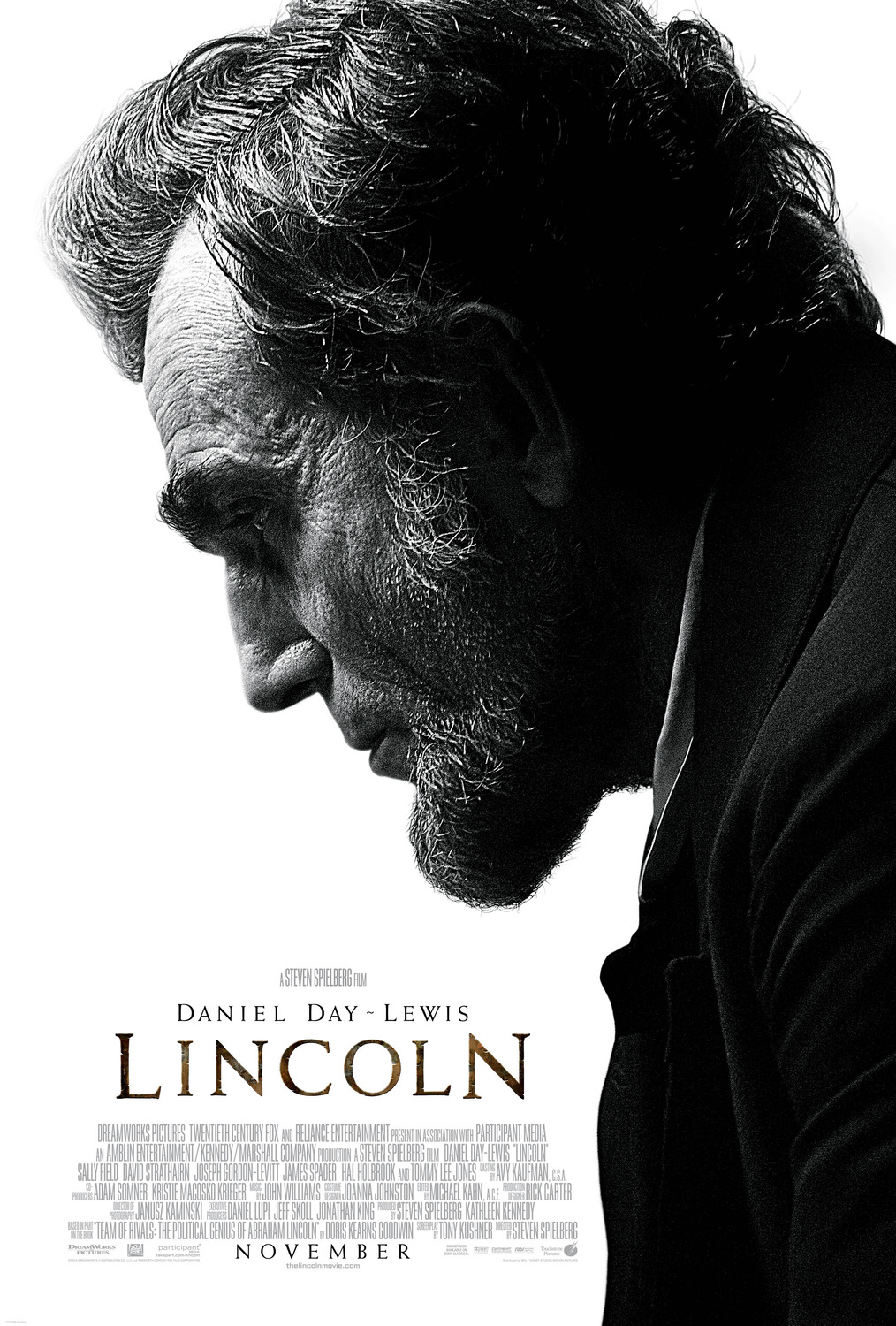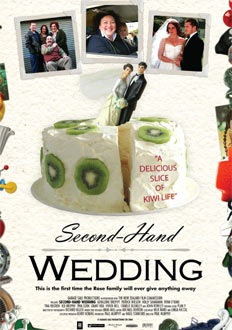Local audiences can pretend they are Academy voters for the next few weeks because almost all the big nominees are being released at the same time. It’s the NZ way – try and maximise attention for your films while they are still contenders but before they become losers. It makes for a crush at local screens – you may not find the film you want at the time you want – but it also means the odds of seeing something really good are much better than usual.
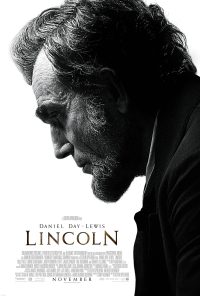 Spielberg’s Lincoln is classy old school filmmaking, as you might expect from such a veteran. He’s assembled an A‑team of writers, performers and technical crew to tell one of the most important – and resonant – stories of the last 150 years. Abe Lincoln (Daniel Day-Lewis) has been re-elected to his second term as President and the painful and bloody Civil War is almost won. Why would he risk his considerable political capital to try and pass the Thirteenth Amendment to the constitution – prohibiting slavery – when the slave-owning south is almost defeated and many on his own side don’t feel it is necessary?
Spielberg’s Lincoln is classy old school filmmaking, as you might expect from such a veteran. He’s assembled an A‑team of writers, performers and technical crew to tell one of the most important – and resonant – stories of the last 150 years. Abe Lincoln (Daniel Day-Lewis) has been re-elected to his second term as President and the painful and bloody Civil War is almost won. Why would he risk his considerable political capital to try and pass the Thirteenth Amendment to the constitution – prohibiting slavery – when the slave-owning south is almost defeated and many on his own side don’t feel it is necessary?
Because it is the right thing to do, obviously, but Lincoln’s genius is to show how doing the right thing requires so many other moral compromises. Like a 19th Century version of “The West Wing” – John Williams’ score even recalls “Snuffy” Walden’s theme tune at times – Day-Lewis’s president prowls the lonely corridors of the White House with the weight of the world, and a very personal grief – on his shoulders. Day-Lewis is simply astonishing – like a heavyweight boxer coming out of the dressing room to intimidate his lesser opponents there is simply no other contender for Best Actor this year. There’s no one else like him.
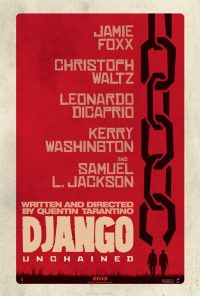 Quentin Tarantino looks at slavery from another angle in Django Unchained. Like his previous film, Inglourious Basterds, it is a brilliant revenge fantasy, gleefully re-writing history so that the evil-doers get their justified come-uppance. Not as tightly made – or as narratively coherent – as the previous film, Django showcases Tarantino’s writing better than his direction. Christoph Waltz proves once again that he was born to speak those lines but everyone involved gets a moment or two to chew some scenery.
Quentin Tarantino looks at slavery from another angle in Django Unchained. Like his previous film, Inglourious Basterds, it is a brilliant revenge fantasy, gleefully re-writing history so that the evil-doers get their justified come-uppance. Not as tightly made – or as narratively coherent – as the previous film, Django showcases Tarantino’s writing better than his direction. Christoph Waltz proves once again that he was born to speak those lines but everyone involved gets a moment or two to chew some scenery.
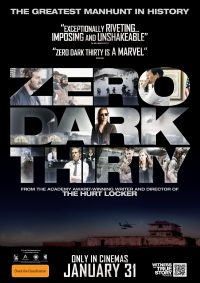 At the 2010 Oscars, Kathryn Bigelow’s The Hurt Locker was a surprise winner – at least it was a surprise to New Zealand distributors who weren’t planning to release it at all. The follow-up, Zero Dark Thirty, also has a Middle East focus – the decade long hunt for Osama Bin Laden by a CIA prepared to use any means necessary to extract information from detainees. One wonders what Lincoln might have thought (although he suspended habeas corpus during the Civil War so his principles were malleable).
At the 2010 Oscars, Kathryn Bigelow’s The Hurt Locker was a surprise winner – at least it was a surprise to New Zealand distributors who weren’t planning to release it at all. The follow-up, Zero Dark Thirty, also has a Middle East focus – the decade long hunt for Osama Bin Laden by a CIA prepared to use any means necessary to extract information from detainees. One wonders what Lincoln might have thought (although he suspended habeas corpus during the Civil War so his principles were malleable).
Bigelow’s lengthy film is at its best when people aren’t speaking. Mark Boal’s exposition-heavy script is clunky but the action set pieces are first rate. I wasn’t sure that The Hurt Locker was all that much of a triumph as bomb disposal lends itself pretty easily to cinematic tension but ZDT proves that Bigelow is the real deal.
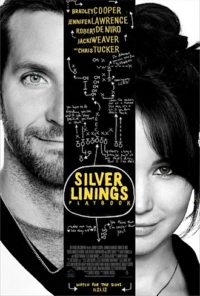 There’s less than meets the eye at Silver Linings Playbook, David O. Russell’s follow-up to multi-Oscar-winner The Fighter. Two barely compatible films merged into one, SLP is a romantic comedy about two psychologically damaged souls discovering each other through ballroom dancing. The first half is a gritty look at Bradley Cooper’s attempted recovery from a violent bipolar disorder – not without some sensitivity it must be said and generally well played – and then the second half becomes a by-the-book rom-com building to an entirely predictable climax. Not un-entertaining but no classic.
There’s less than meets the eye at Silver Linings Playbook, David O. Russell’s follow-up to multi-Oscar-winner The Fighter. Two barely compatible films merged into one, SLP is a romantic comedy about two psychologically damaged souls discovering each other through ballroom dancing. The first half is a gritty look at Bradley Cooper’s attempted recovery from a violent bipolar disorder – not without some sensitivity it must be said and generally well played – and then the second half becomes a by-the-book rom-com building to an entirely predictable climax. Not un-entertaining but no classic.
 Much braver is Joe Wright and Tom Stoppard’s star-studded adaptation of Tolstoy’s Anna Karenina. Set inside a Victorian theatre with magical transformations occurring both on and off the stage, the 800+ pages of the classic novel are reduced to a manageable two hours. Fans will no doubt have more to complain about than I in terms of what’s been left out. Keira Knightly is Anna, trapped in a loveless marriage with a brilliantly stern Jude Law. She falls for handsome soldier Vronsky (Aaron Taylor-Johnson) and their affair scandalises Moscow and St Petersburg society. This is an adaptation that divides people – mostly along for-Keira and anti-Keira lines I think – but I liked it a lot.
Much braver is Joe Wright and Tom Stoppard’s star-studded adaptation of Tolstoy’s Anna Karenina. Set inside a Victorian theatre with magical transformations occurring both on and off the stage, the 800+ pages of the classic novel are reduced to a manageable two hours. Fans will no doubt have more to complain about than I in terms of what’s been left out. Keira Knightly is Anna, trapped in a loveless marriage with a brilliantly stern Jude Law. She falls for handsome soldier Vronsky (Aaron Taylor-Johnson) and their affair scandalises Moscow and St Petersburg society. This is an adaptation that divides people – mostly along for-Keira and anti-Keira lines I think – but I liked it a lot.
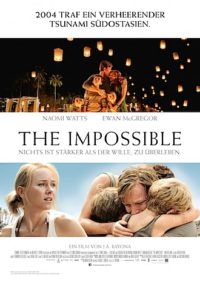 The Impossible was probably my least-anticipated film of the summer – the true story of a western family separated and then reunited during the 2004 Boxing Day tsunami as it hit the Thai coast. I was expecting some over-emotional disaster-porn but it just goes to show that it’s still possible to be surprised, even at my age. The tsunami sequence itself is extremely harrowing, true, but in an honest way and director Juan Antonio Bayona does a fine job of milking an authentic emotional response out of the rest of the story. It does a difficult job, well.
The Impossible was probably my least-anticipated film of the summer – the true story of a western family separated and then reunited during the 2004 Boxing Day tsunami as it hit the Thai coast. I was expecting some over-emotional disaster-porn but it just goes to show that it’s still possible to be surprised, even at my age. The tsunami sequence itself is extremely harrowing, true, but in an honest way and director Juan Antonio Bayona does a fine job of milking an authentic emotional response out of the rest of the story. It does a difficult job, well.
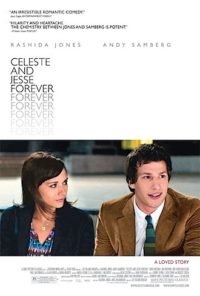 Sprinkling a few moments of authenticity over itself, like hundreds and thousands sprinkled over a plastic cake, Celeste & Jesse Forever adds a twist to the rom-com genre by making the will they/won’t they couple about-to-be-divorced best friends. Andy Samberg and Rashida Jones play C & J, whose differing responses to separation provide a little comedy and a little drama. Best thing about the film is the presence of Jones whose star quality has taken far too long to be recognised – she has Quincy Jones genes after all.
Sprinkling a few moments of authenticity over itself, like hundreds and thousands sprinkled over a plastic cake, Celeste & Jesse Forever adds a twist to the rom-com genre by making the will they/won’t they couple about-to-be-divorced best friends. Andy Samberg and Rashida Jones play C & J, whose differing responses to separation provide a little comedy and a little drama. Best thing about the film is the presence of Jones whose star quality has taken far too long to be recognised – she has Quincy Jones genes after all.
Printed in Wellington’s Capital Times on Wednesday 6 February, 2013.

